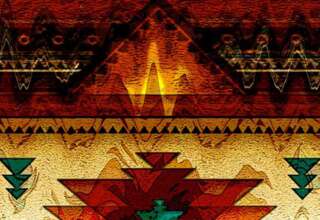
However, we can refine the way we react to create pockets of order. It simply means cultivating our emotions so that we internalize better ways of responding to others, to move from a state where we just randomly respond to things emotionally, immediate emotional reaction (Chinese terminology “qing”) to a state where we are able to respond with propriety, in ways that we have cultivates (“yi”). We do this through ritual.
Most of us have certain “rituals”. Morning cup of coffee, weekly family dinner with parents, or piggyback ride for the kids at bedtime, we consider these moments important as they give our lives meaning and bond us to our loved one. In Confucius teachings these are potential rituals. Confucius defines rituals in a new and provocative way. Rituals in Confucius sense are transformative, they allow us to become a different person for a moment. They create a short-lived alternate reality that returns us to our regular life slightly altered. For a brief moment, we are living in an “as-if” world.
Take an example of greeting someone we’ve a conflict with, we share a more civil side of ourselves and break the pattern of disagreement. For this brief moment we experience different relationships with those around us. Or when we are feeling a bit down, taking a moment to say hi to another person can interrupt a cycle of negative emotion. But if we go through life performing most social conventions by routine – we use different greetings, ask different sorts of questions and use different tones when talking to different people – they lose their power to become rituals that can profoundly change us. In order for us to change we must become aware that breaking from our normal ways of being is what makes it possible to develop a different side of ourselves.
In the Analects, Confucius is asked about ancestor worship. He says that the ritual is absolutely necessary but that it makes no difference whether the spirits are participating or not. We sacrifice to them “as-if” they are there. And we must participate in the ritual fully. If we do not, it is “as-if” we did not sacrifice.
In real life, relationships are imperfect and fraught, ritual moves us from this troubled world of relationships and creates a space, a ritual space, in which ideal relationships can be forged. For Confucius, ritual was essential because of what it can do for the people performing it. Family members needed to make the sacrifice because acting “as-if” the ancestors were there brought about change to themselves. It also changes the feelings of the living towards one another. Within the ritual household unrest, sibling rivalry, everyone plays their new familial roles “as-if” there were no discord. Of course, ritual always ends. The moment family members walk out of the ritual space, they are in the messy world again, and the pieces fall apart once more. But gradually by repeating the rituals again and again and re-creating healthier connections, the improved relationship among members would begin to manifest more in daily life.




